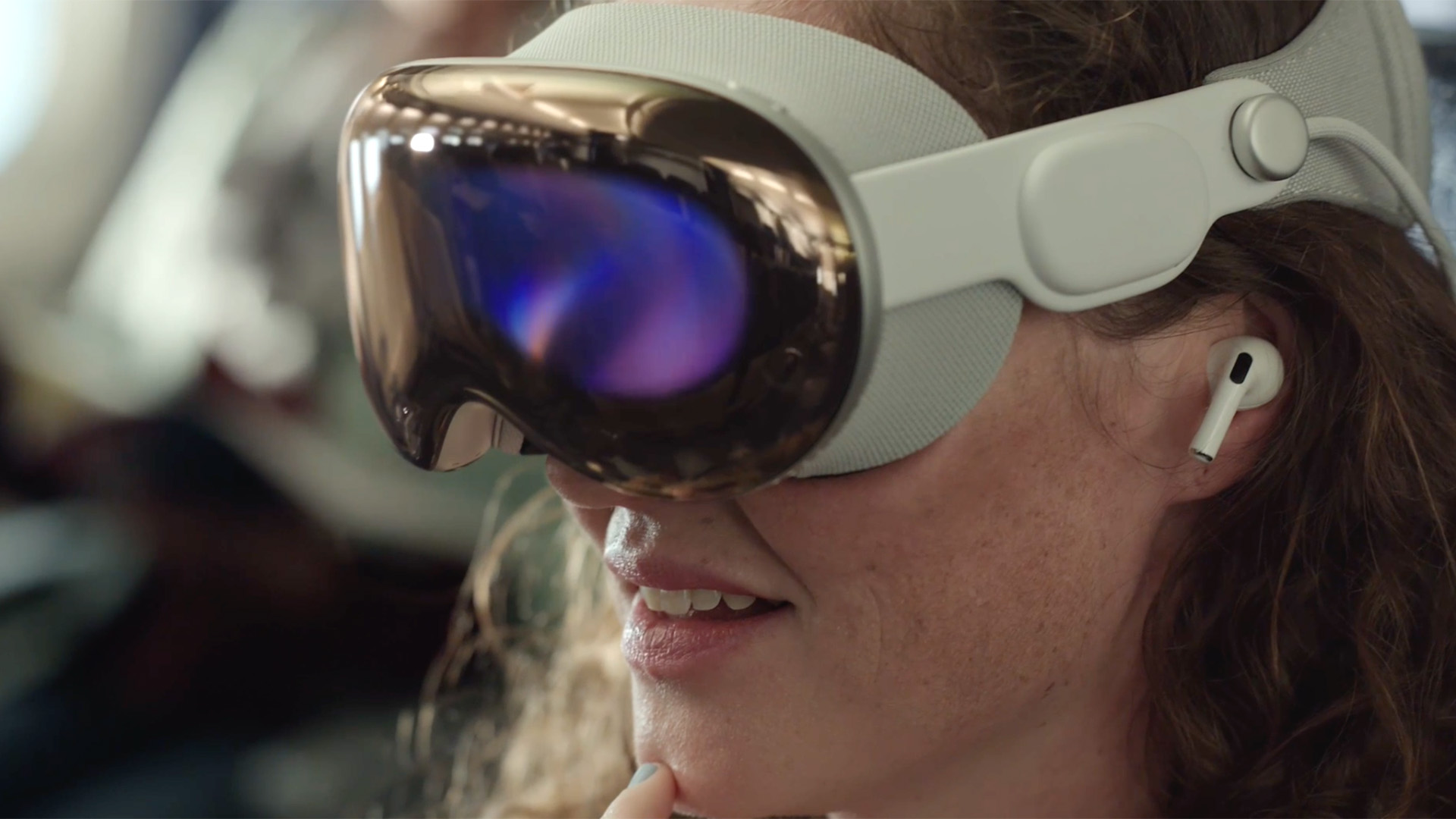

Several elements of the Apple Vision Pro stand out. Still, nothing will quite prepare you for the brilliance of the all-encompassing micro-OLED display that transports you to an entirely different world – or worlds, as is perhaps a fairer assessment.
In my 10 years as a technology journalist, nothing has rendered me speechless quite like this device did in my 30-minute experience with it. There are two individual lenses within the Vision Pro, behind which the 3D display system offers up to 23 million pixels – more than the equivalent of a 4K TV in each eye – and the detail presented is nothing short of phenomenal.
The familiar apps are mere centimetres from your face and there wasn’t so much as a pixel out of place, with sharp and crisp lines making up the rounded icons we’ve come to know and love from Apple’s interface. The apps are only the beginning, however. The true scale of what Vision Pro is capable of was presented to me in an interactive spatial experience with a dinosaur.
In what is almost impossible to describe, the detail of the dinosaur’s scaled skin a matter of what felt like millimetres from my eyes is as vivid in my mind today as it was when I first experienced it. With each groove, ridge and slight colour variation all creating such a magnificently realistic picture, I had to remind myself several times over in those brief minutes with the Tyrannosaurus that dinosaurs had, in fact, not returned from extinction to consume me.
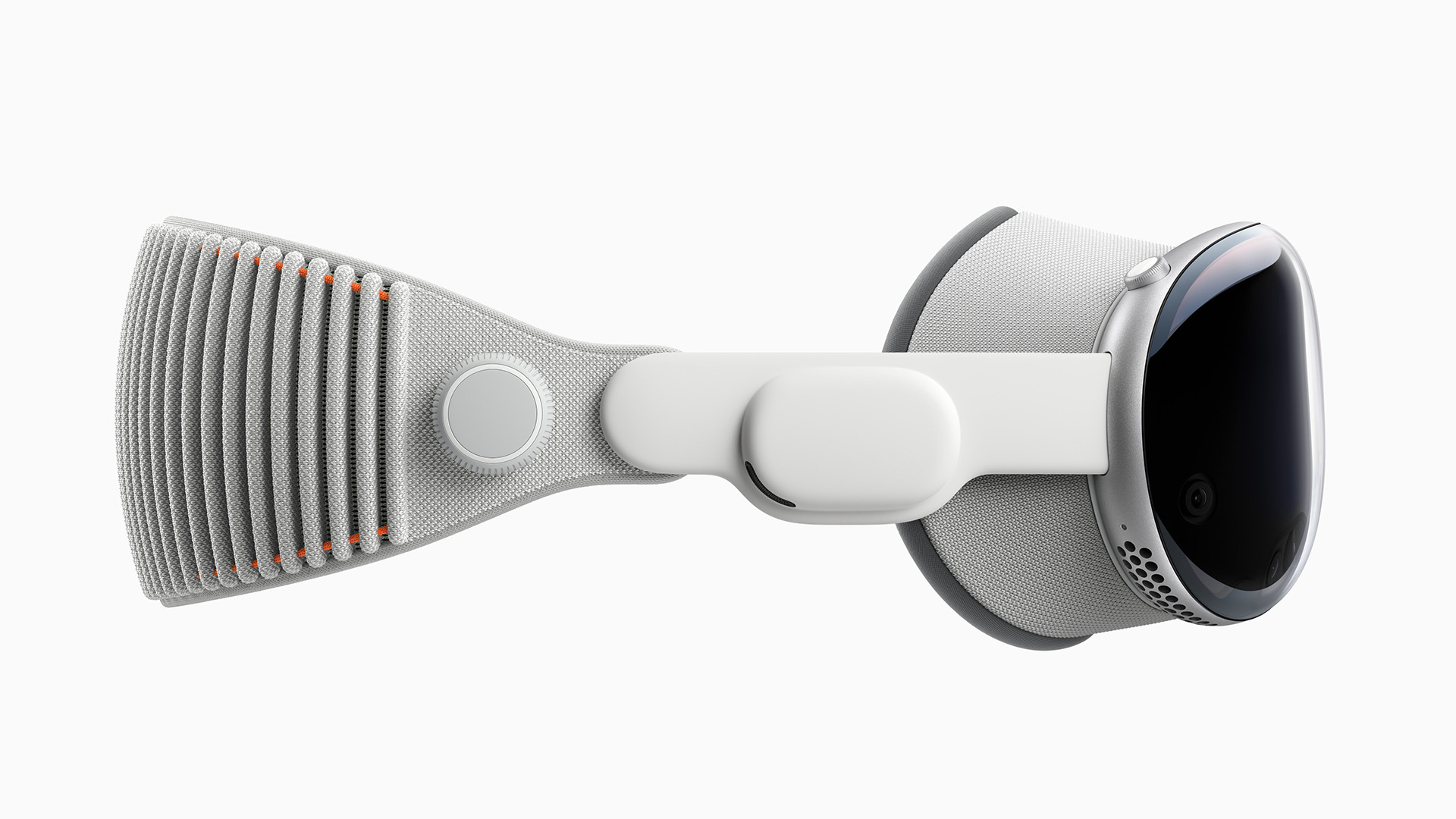
Build and comfort
If the incredible detail in the displays doesn’t do enough to impress, the quality of the materials used in Vision Pro will certainly play its part in convincing you this headset is worth the cash. There is absolutely no denying how expensive Vision Pro is, but every element of its build oozes luxury.
Yes, it could certainly be said the design is remarkably like a pair of exceptionally premium ski goggles, but everything from the aluminium alloy casing with its rounded edges, Digital Crown and capture button, to the soft-to-touch material Light Seal, delivers the kind of quality you would expect in designer goods twice the price.
The Light Seal – set up individually per user with an iPhone in a similar process to setting up Face ID – secures comfortably around your nose and eyes to ensure not a single ray of light from the real world beams through. Audio straps attach from the Light Seal to the ribbed material Head Band that holds the device in place and is adjusted with the Fit Dial on the right of the headset.
Sign up to the T3 newsletter for smarter living straight to your inbox
Get all the latest news, reviews, deals and buying guides on gorgeous tech, home and active products from the T3 experts
There’s also an optional additional strap that goes across the top of your head to take some of the 450g weight, but in 30 minutes of continuous wearing, I didn’t find it remotely uncomfortable or heavy. I may say differently after watching a three-hour film, but the charging lead for the smooth aluminium battery pack was the only element of the build I found slightly irritating, and even that was grounding at times.
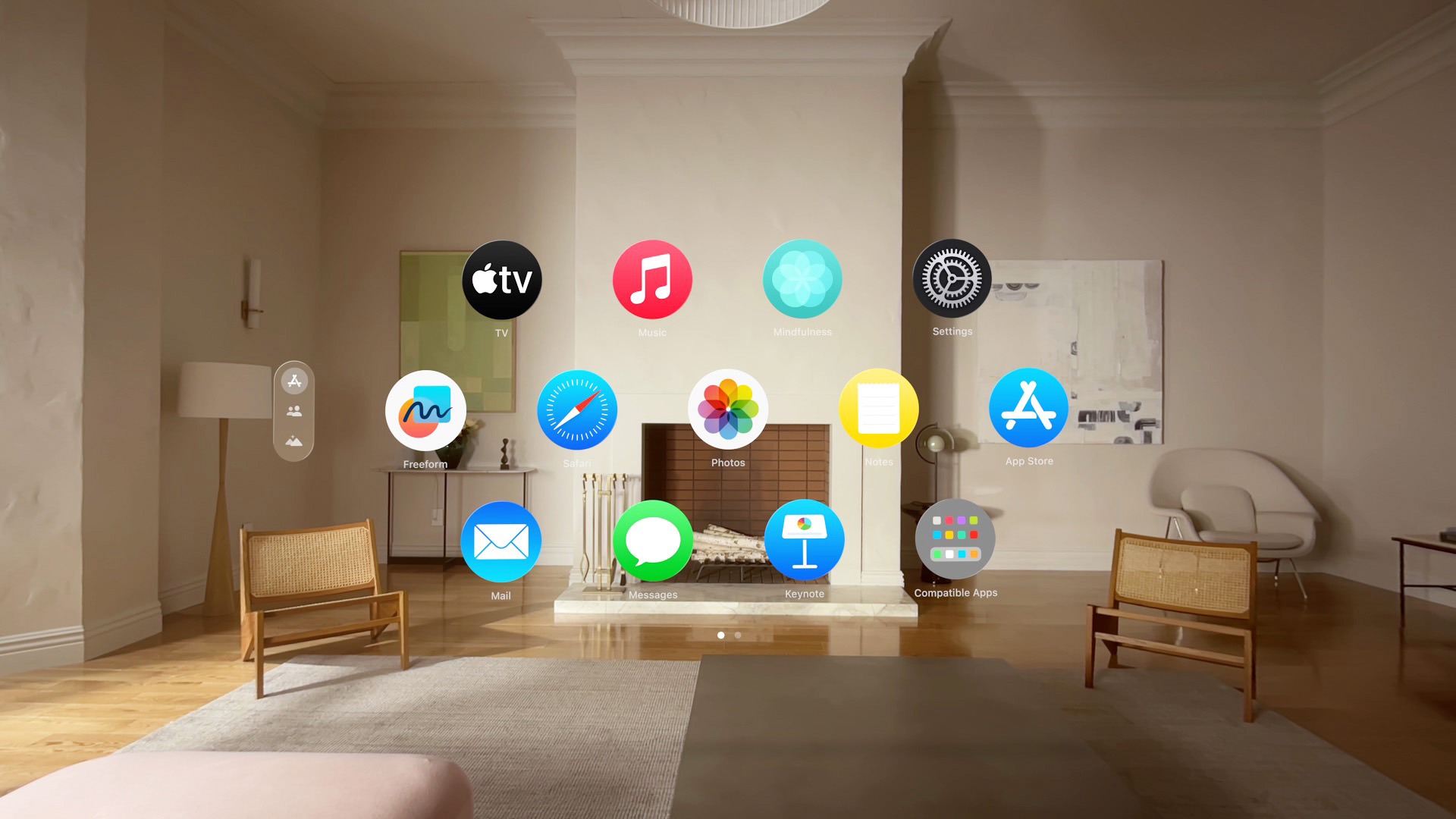
Performance
Judging the performance of the Vision Pro from a 30-minute demo wouldn’t be possible, but from my experience so far, it has everything it needs to be exceptional. It was incredibly smooth and consistent; stuttering is a word that does not exist in its vocabulary.
Virtual reality headsets have significantly improved over the years, moving from devices that more often than not caused motion sickness – especially when used for more than a few minutes – to much faster refresh rates on the displays, allowing them to deliver a more fluid experience overall, but Vision Pro is on a different level.
It offers such a smooth performance that motion sickness was never on my radar and the only side effect I had following my briefing was trying to digest what I had just experienced. Even turning the Digital Crown to move between the virtual world and the real world was a gentle and natural feeling, gliding between the environments seamlessly.
There were very few things I disliked about Vision Pro, but FaceTime was one. The digital persona of someone in the Apple Park offices several hundred metres from my demo was impressive, but the overall FaceTime experience with this person was much more impersonal than what you get on iPhone and iPad. More like talking to a robot than a real person, with unnatural and awkward smiling and laughing from the digital persona and some lag too. Put it this way, I wouldn’t choose FaceTime on Vision Pro over the iPhone 15 Pro Max as yet.
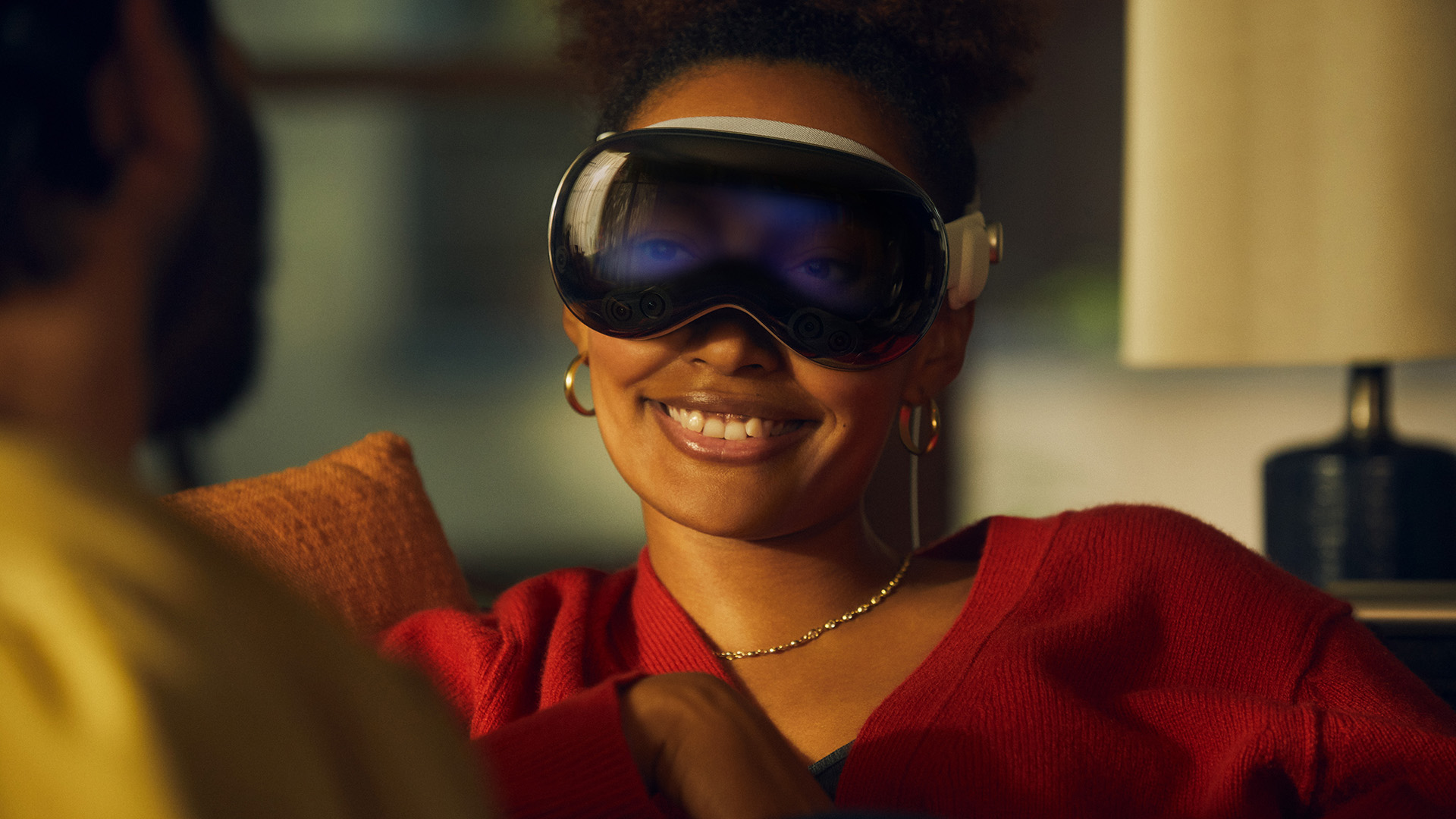
Eye-tracking and gesture control
One of the Vision Pro’s greatest triumphs is that it doesn’t require additional controls to interact with the VisionOS interface. All you need is your eyes and your hands, and to get accustomed to a light pinch and drag gesture.
What was perhaps the most surprising about these elements of Vision Pro was how quickly the interface responded and the app icons ‘popped’ when glanced at. To how natural the gesture became after seconds, whether swiping through photos or moving things around the spatial environment. It’s incredibly disappointing that things in the real world don’t subtly bounce when I look at them now, or move when I pinch and drag.
The 12 cameras and five sensors within the Vision Pro are remarkable at tracking your eyes and hands. The only time I noticed gesture control not being recognised properly was when my hands were too close together in my lap, meaning the cameras and sensors weren’t able to see the movements clearly.
There is an initial setup process but it’s a matter of minutes. For eye calibration, you follow dots around the Vision Pro’s screen a couple of times, while hand calibration involves holding both hands up for a few seconds.
What’s notable is how subtle the pinch and drag gesture could be and how minor a glance needed to be for the Vision Pro to register. The VisionOS interface is also exceptionally familiar instantly. How a brand new device, brand new interface and a brand new category could feel immediately natural was surprising.
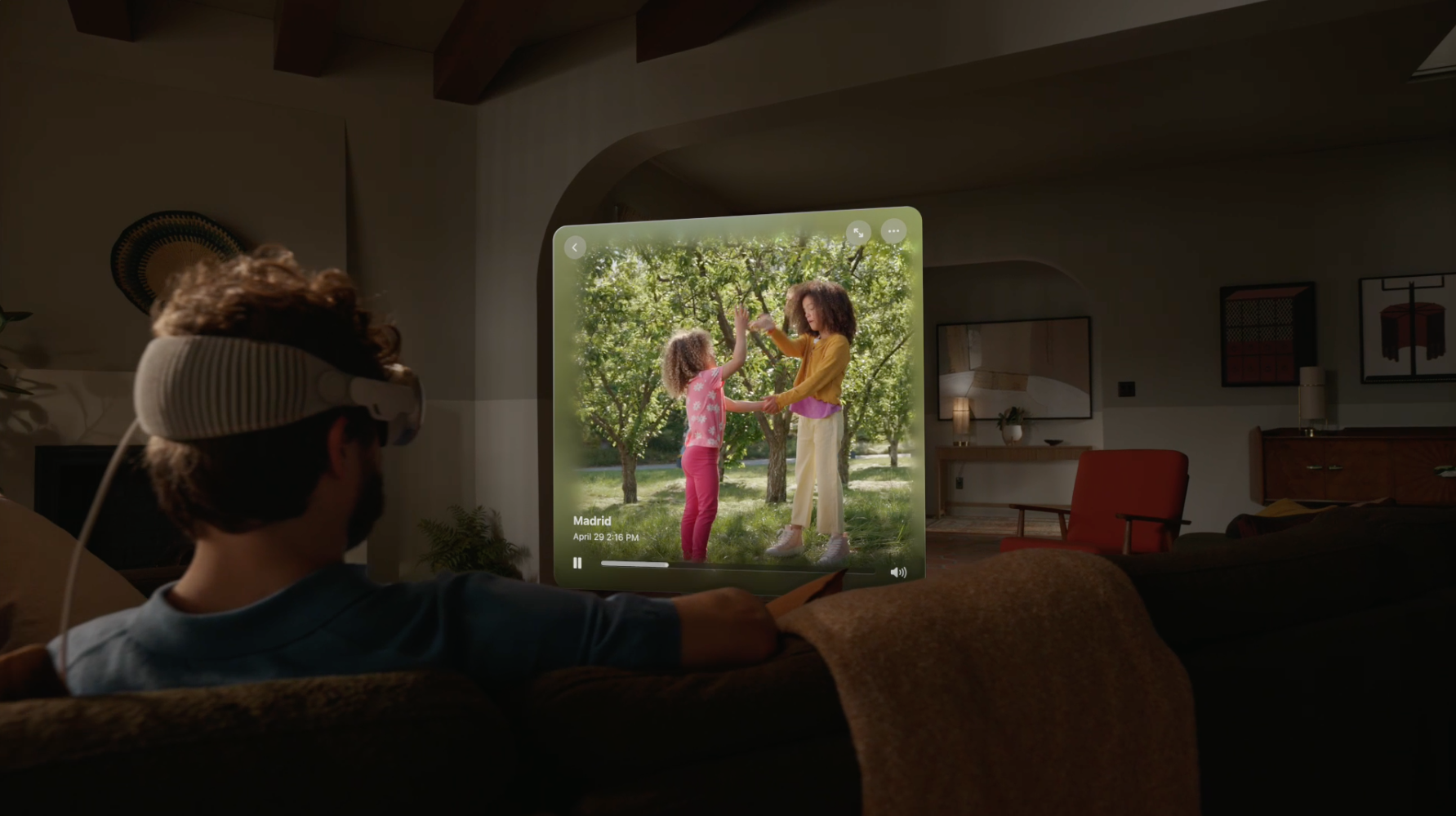
Immersive video content
While the design, displays and gesture controls are achievements in themselves, Vision Pro’s greatest victory so far is content. The demo didn’t focus on gaming, but it didn’t have to, because whether it’s watching back Spatial Video, sitting in the centre of 180-degree 3D 8K videos with Apple Immersive Video, or transporting you to incredible places within the Environments mode, the content is mind-blowing.
From watching a tear-jerking Spatial Video of a child’s birthday party and witnessing how realistic – and therefore special – the experience could be for loved ones far away, to the Environments mode that took me to the edge of a blissfully calm lake in Mount Hood, the potential here is unhinged.
Avatar 2 in 3D was absolutely exceptional on Vision Pro, and the Cinema mode makes you feel like you’re in the best seat in the house with no distractions. However, that’s nothing compared to sport and concerts. My demo took me right behind the hoop at a basketball game to next to the piano at an intimate Alicia Keyes concert, before launching me underwater with sharks and onto a tightrope thousands of feet in the air.
Add to all those experiences that Disney is a partner for Vision Pro, allowing you to watch Disney’s fantastic library of films in 3D and with such incredible detail, and you have a device that may not sell as many units as iPhone, but that will change the world of computing as we know it. Just like the Macintosh did 40 years ago.
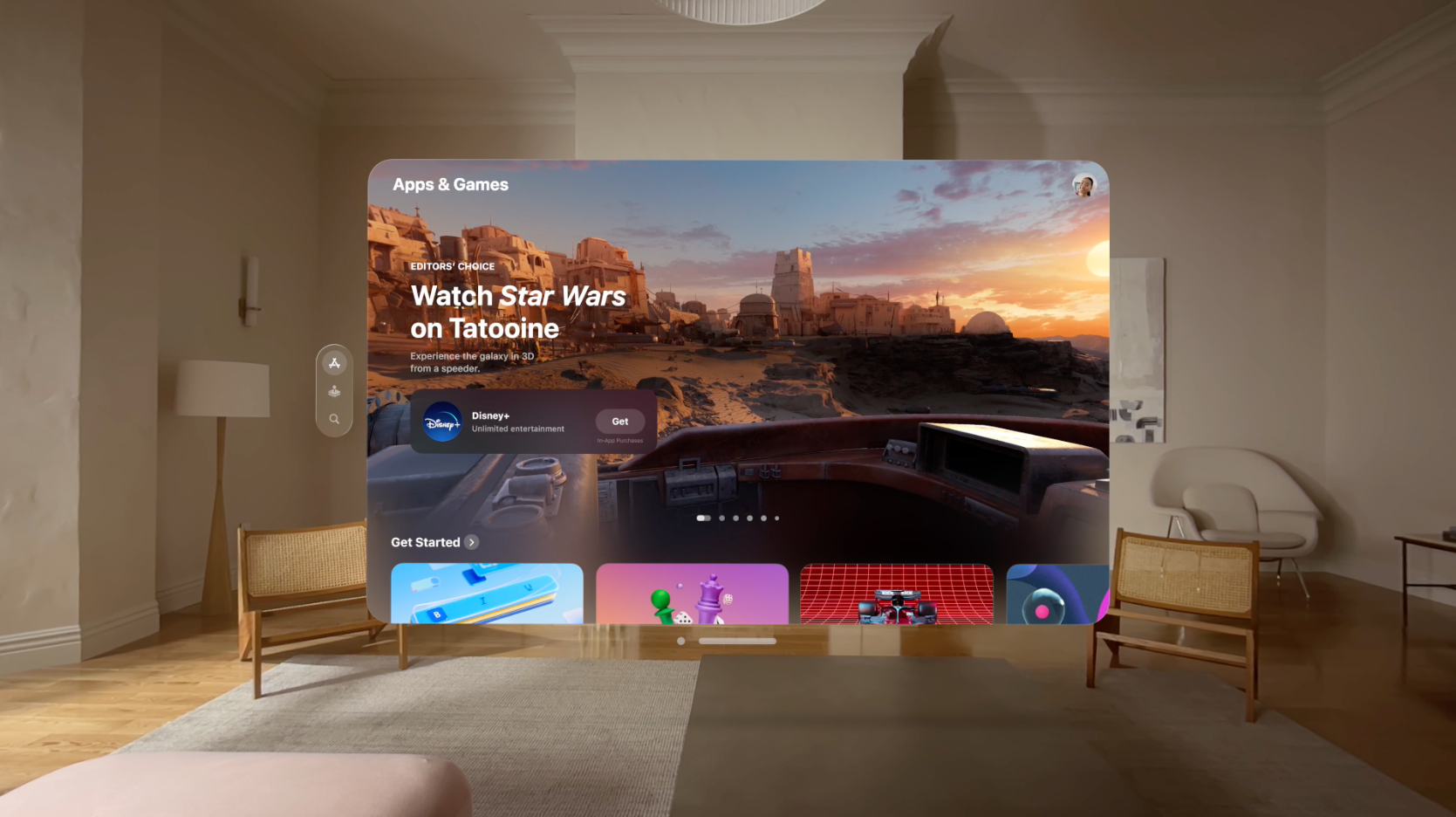
Apple Vision Pro goes on sale in the US on Friday, February 2, 2024, priced from $3,499. There is currently no information on when the product will be available in the UK and other markets.
Britta is a freelance technology journalist who has been writing about tech for over a decade. She's covered all consumer tech from phones, tablets and wearables to smart home and beauty tech, with everything in between. She has a fashion journalism degree from London College of Fashion and previously did a long stint as deputy editor of Pocket-lint, but you’ll now find her byline on several titles including GQ, the Express, the Mirror, TechRadar, Stuff and iMore. You'll never find her without her Apple Watch on, aiming to complete her rings so she can justify the extra bar of chocolate and she loves a good iPhone trick.
-
 12 Easter-inspired fragrances for men and women 2025, from Tom Ford, YSL, Mugler and more
12 Easter-inspired fragrances for men and women 2025, from Tom Ford, YSL, Mugler and moreFrom chocolate to apricots, here are T3’s top picks for Easter-inspired scents
By Bethan Girdler-Maslen Published
-
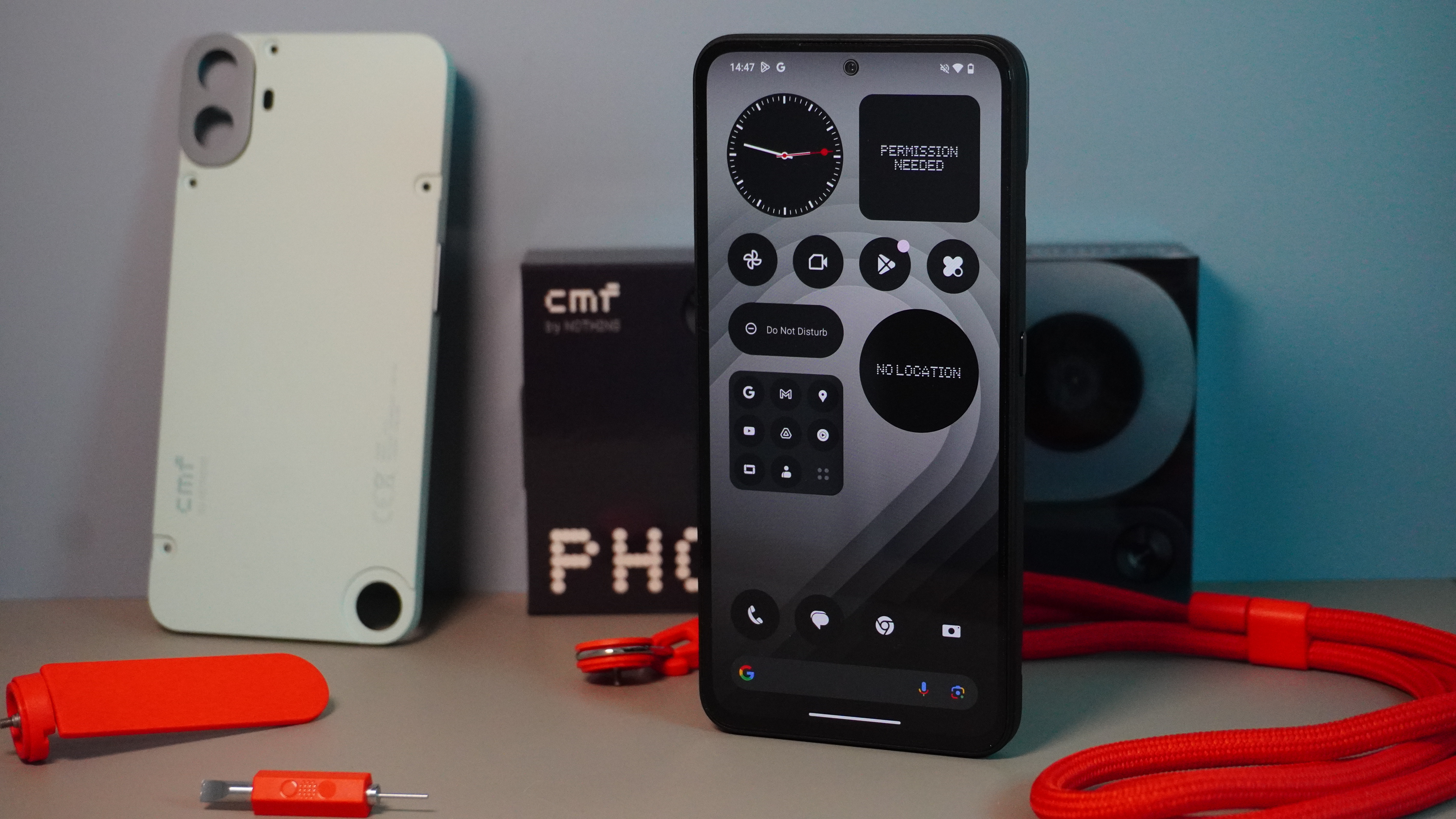 New Nothing phone does something iPhone and Samsung don't – but there's a catch
New Nothing phone does something iPhone and Samsung don't – but there's a catchYou have to live in a certain country to benefit
By Britta O'Boyle Published
-
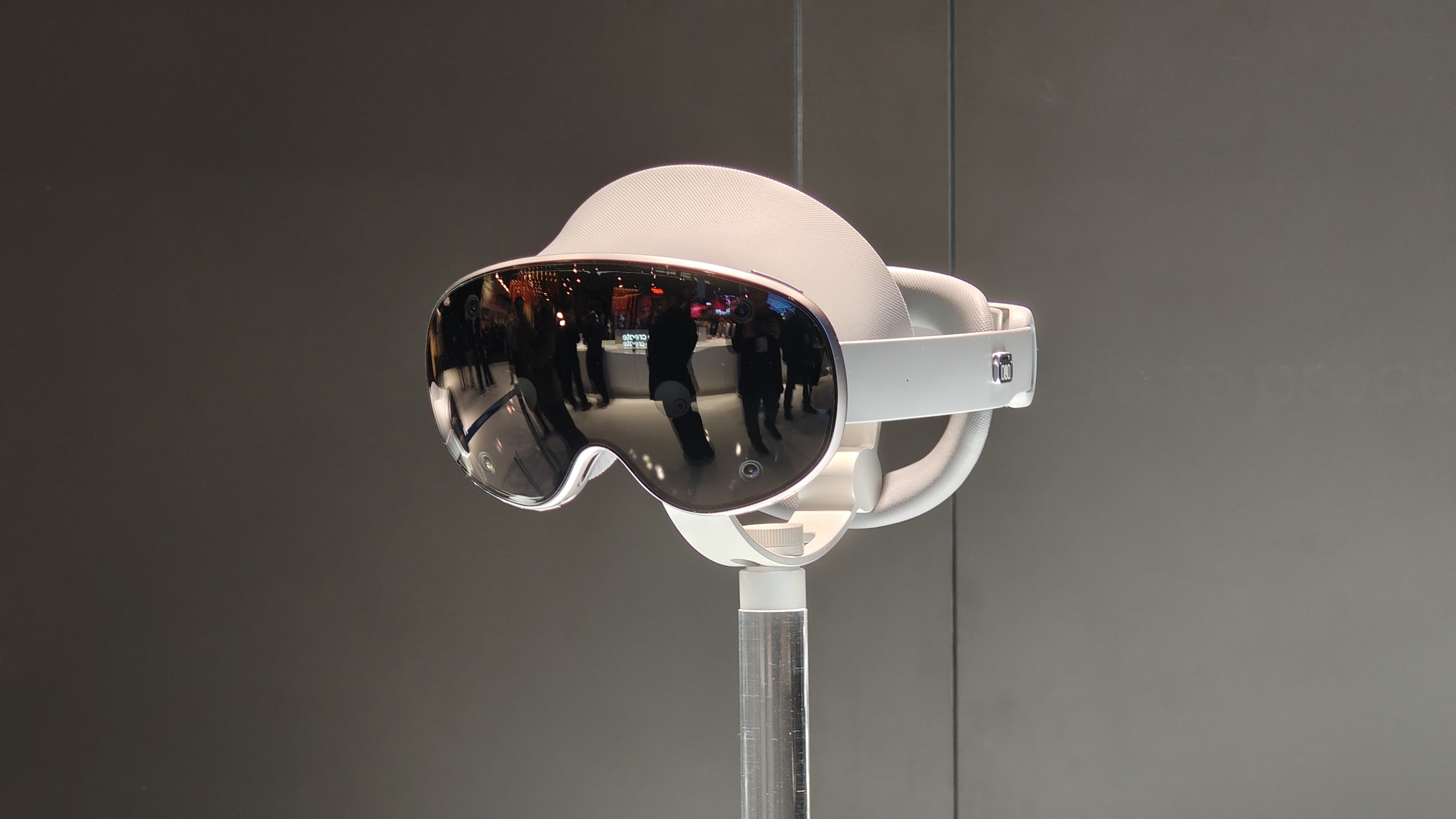 Samsung's XR headset could beat Apple Vision Pro in at least one area
Samsung's XR headset could beat Apple Vision Pro in at least one areaThis could be a significant boost for the Android device
By Sam Cross Published
-
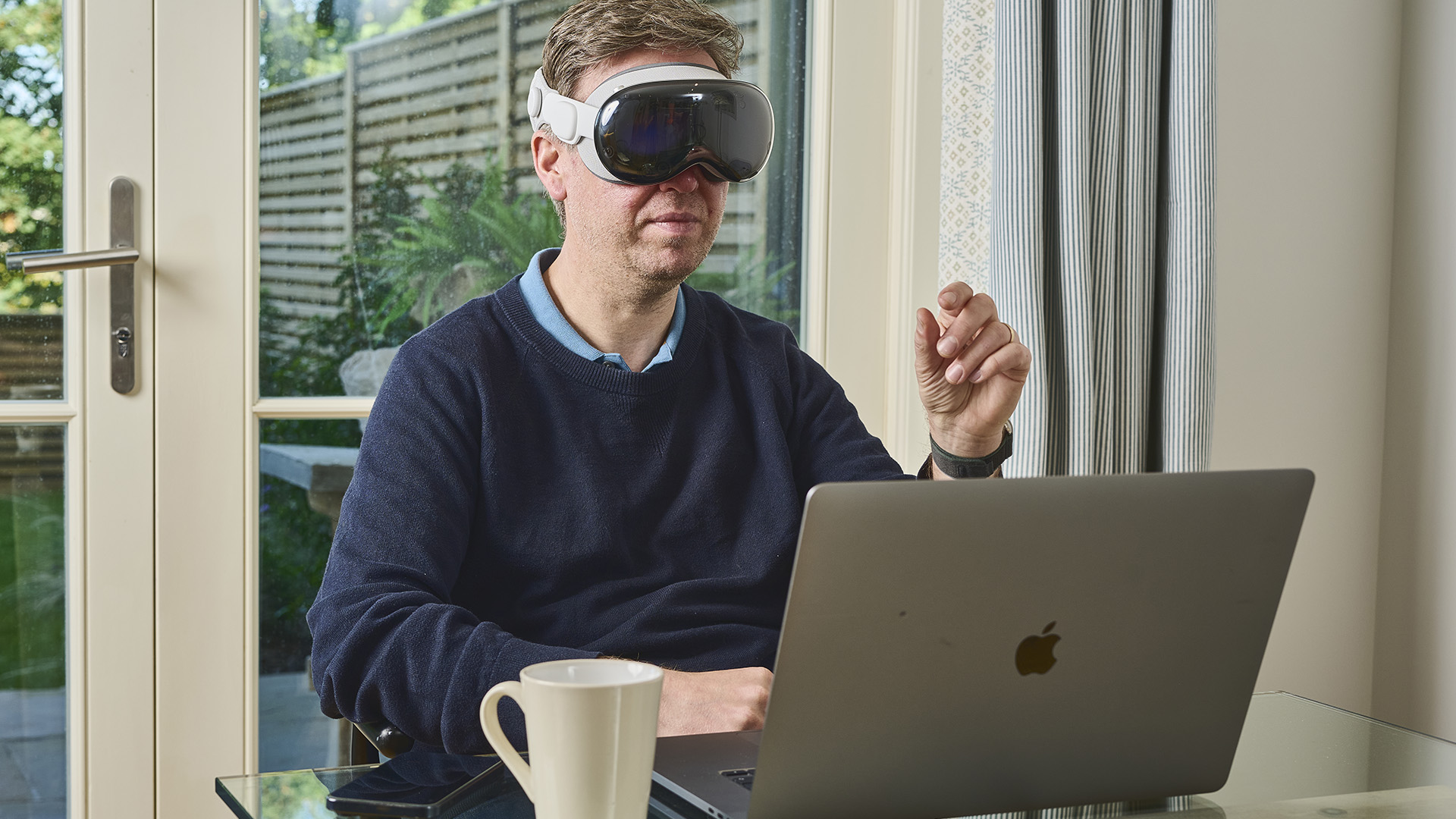 Apple Vision Pro could get its biggest update since launch in a matter of weeks
Apple Vision Pro could get its biggest update since launch in a matter of weeksApple Intelligence could be coming to the device
By Sam Cross Published
-
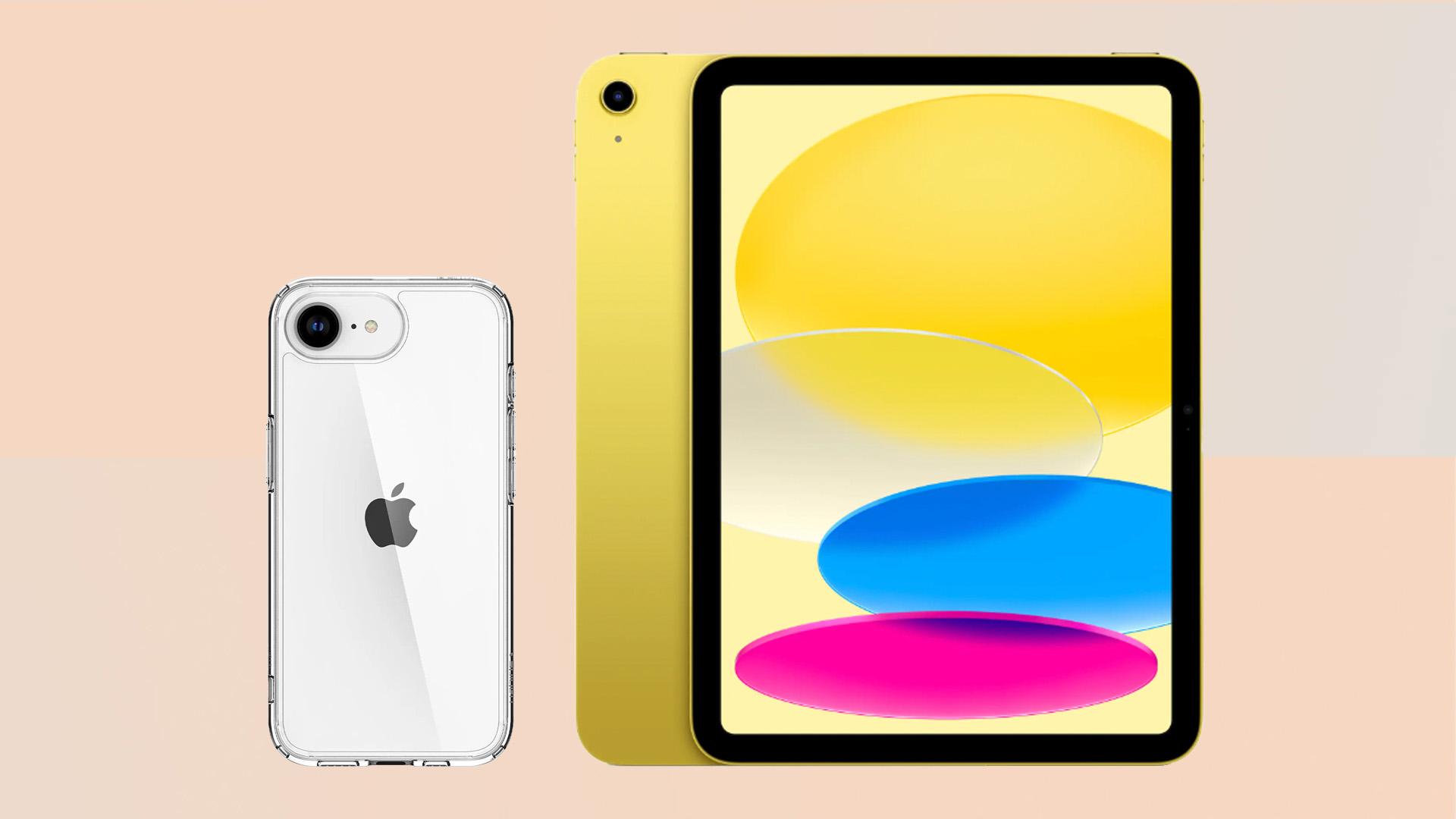 iPhone SE 4 and new iPad launch plans become more clear – other new Apple devices too
iPhone SE 4 and new iPad launch plans become more clear – other new Apple devices tooIndustry expert Mark Gurman has clarified Apple's plans for its latest device refresh
By Rik Henderson Published
-
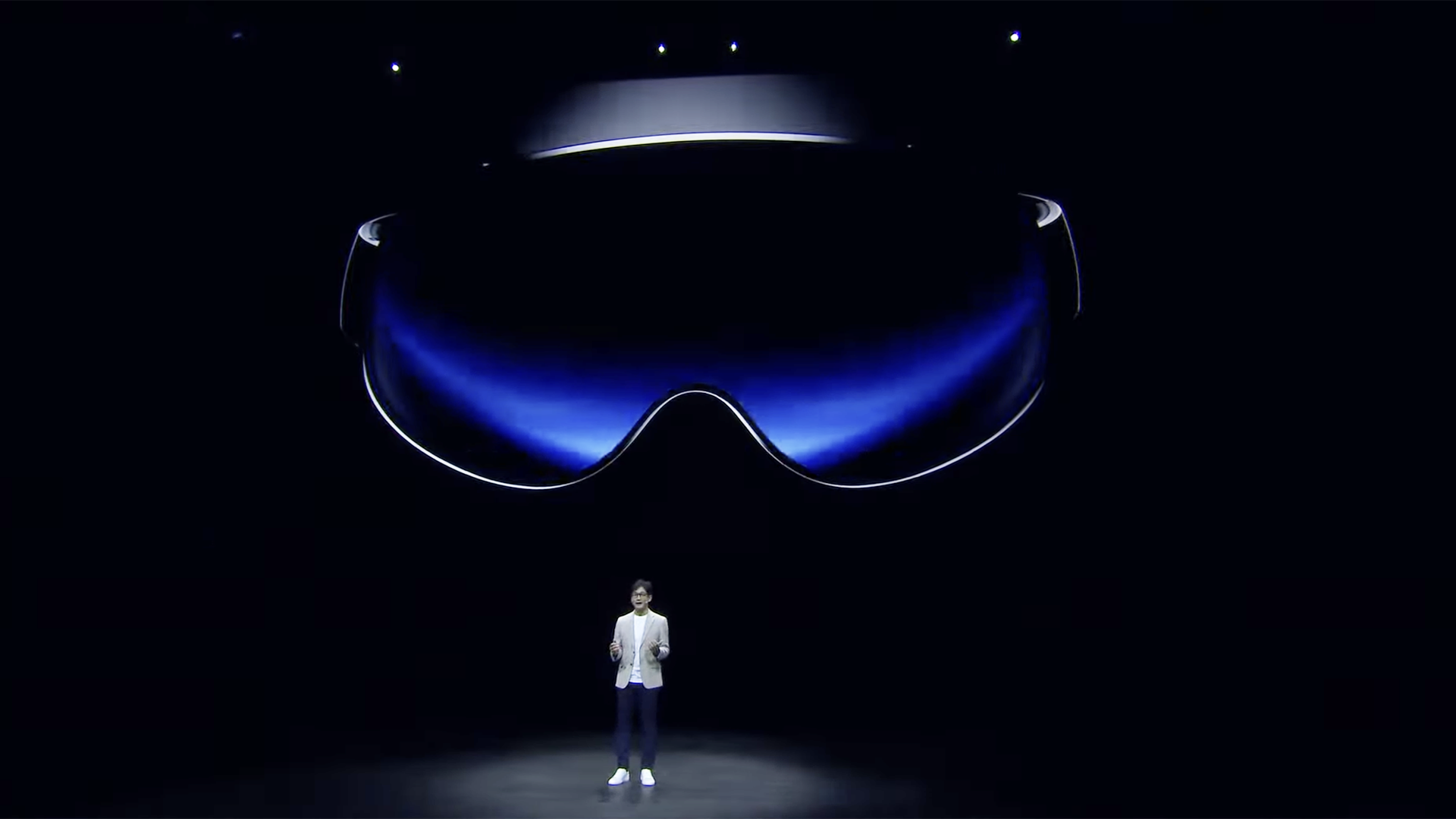 Samsung's Vision Pro rival to get a big boost from a clever Google acquisition
Samsung's Vision Pro rival to get a big boost from a clever Google acquisitionGoogle is buying HTC's XR division to work on Android XR – the driving force behind Project Moohan
By John McCann Published
-
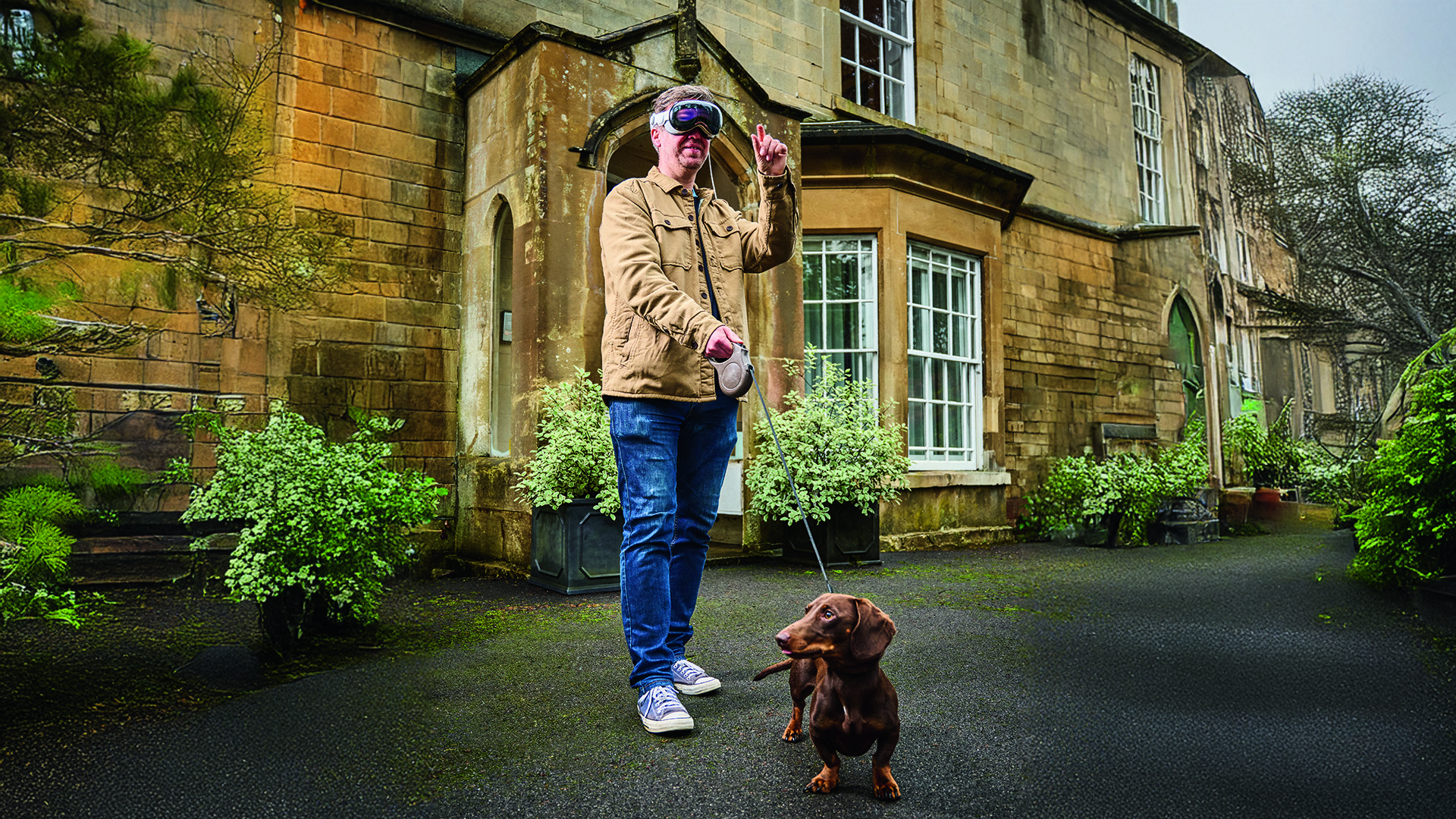 24 hours with the Apple Vision Pro
24 hours with the Apple Vision ProI spent the day seeing the world through the eyes of the Apple Vision Pro
By Mat Gallagher Published
-
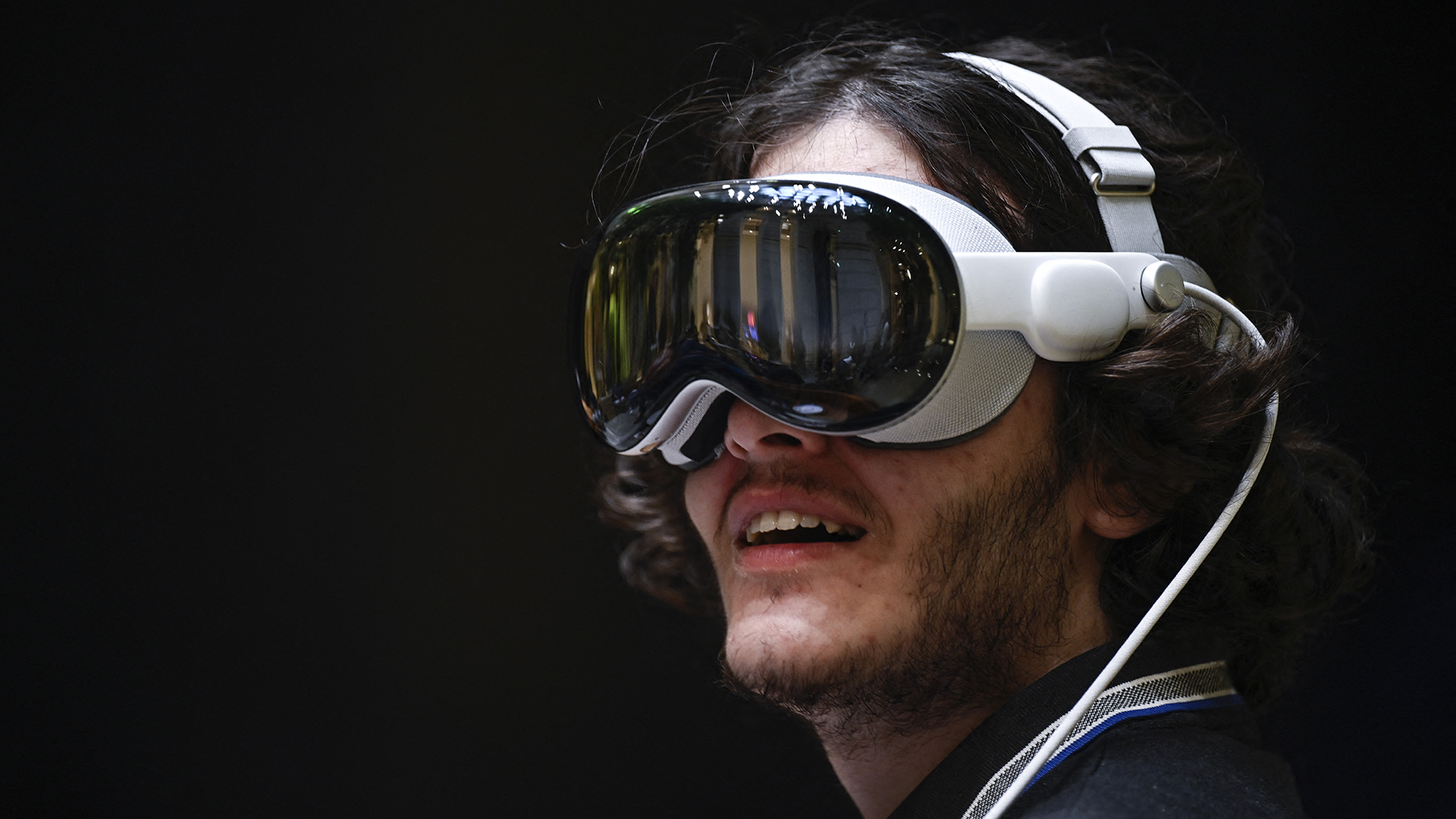 Apple Vision Pro could be used to attend live football from anywhere – one major club has already confirmed plans
Apple Vision Pro could be used to attend live football from anywhere – one major club has already confirmed plansImmersive football in your front room - yes please
By Chris Hall Published
-
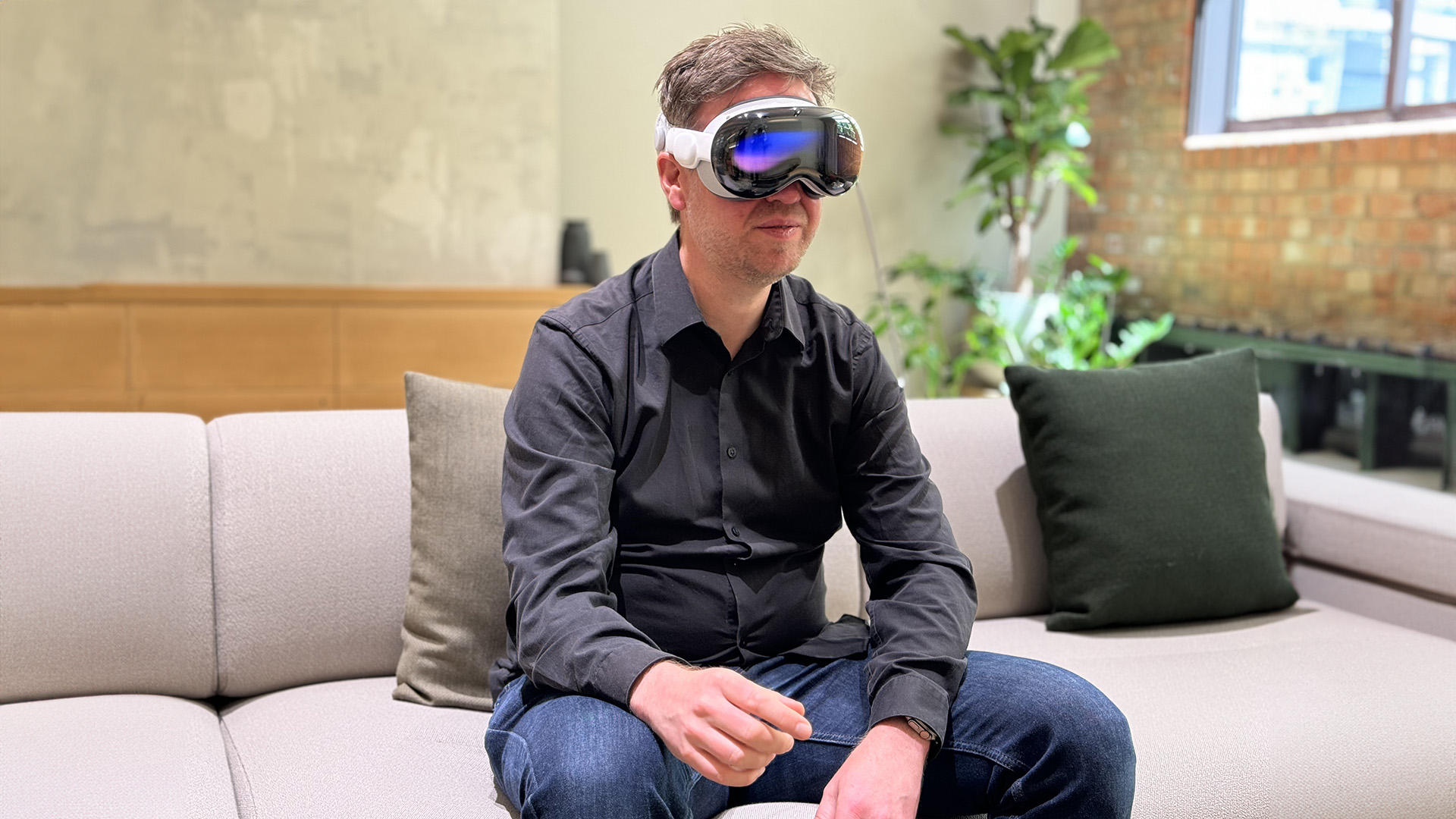 Apple Vision Pro could learn a thing or two from PSVR2 when it comes to gaming
Apple Vision Pro could learn a thing or two from PSVR2 when it comes to gamingCraving proper gaming on the Apple Vision Pro? That could happen
By Chris Hall Published
-
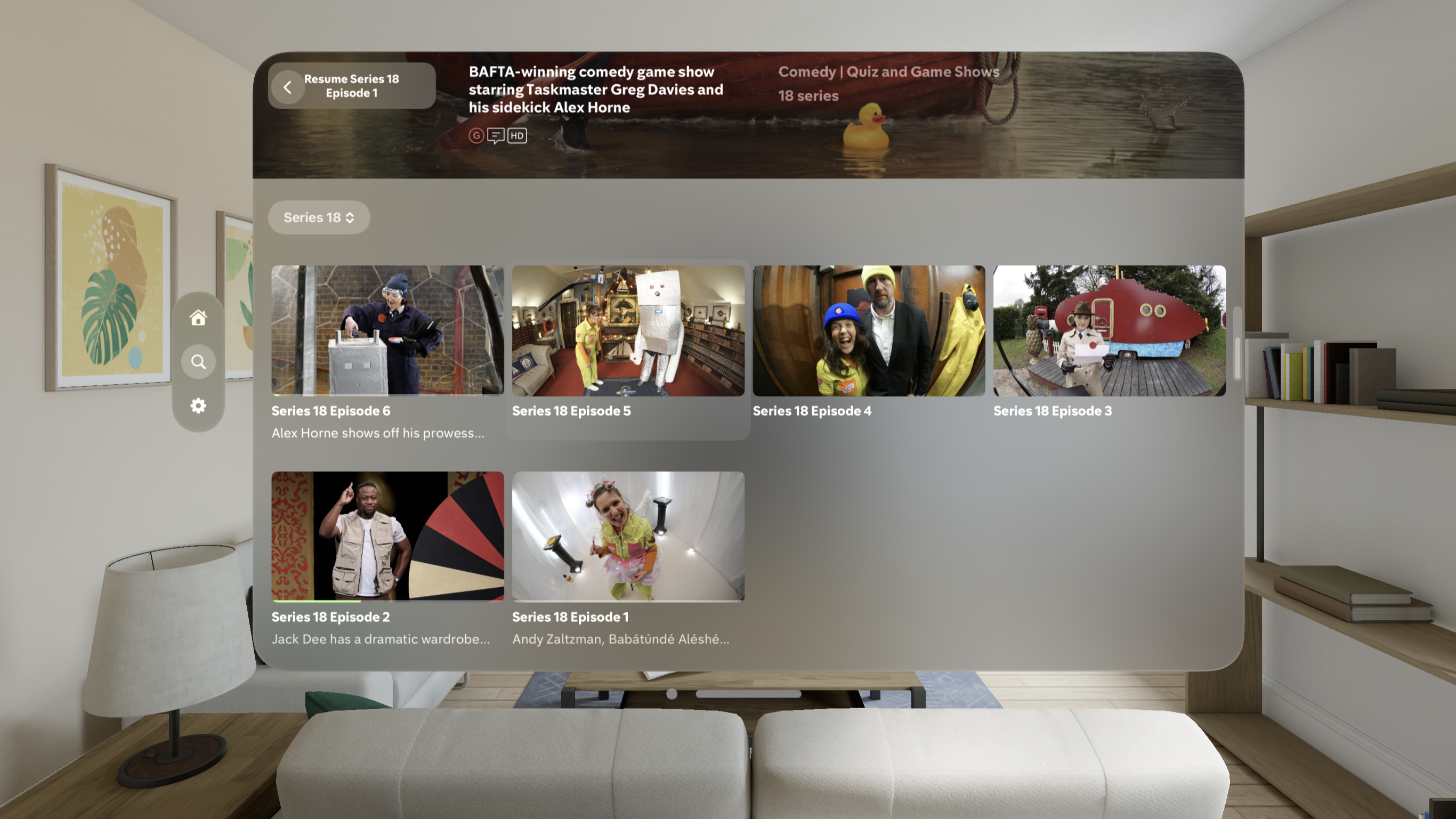 Channel 4 launches a new app for the Apple Vision Pro headset
Channel 4 launches a new app for the Apple Vision Pro headsetIt's the first of its kind for the device
By Sam Cross Published